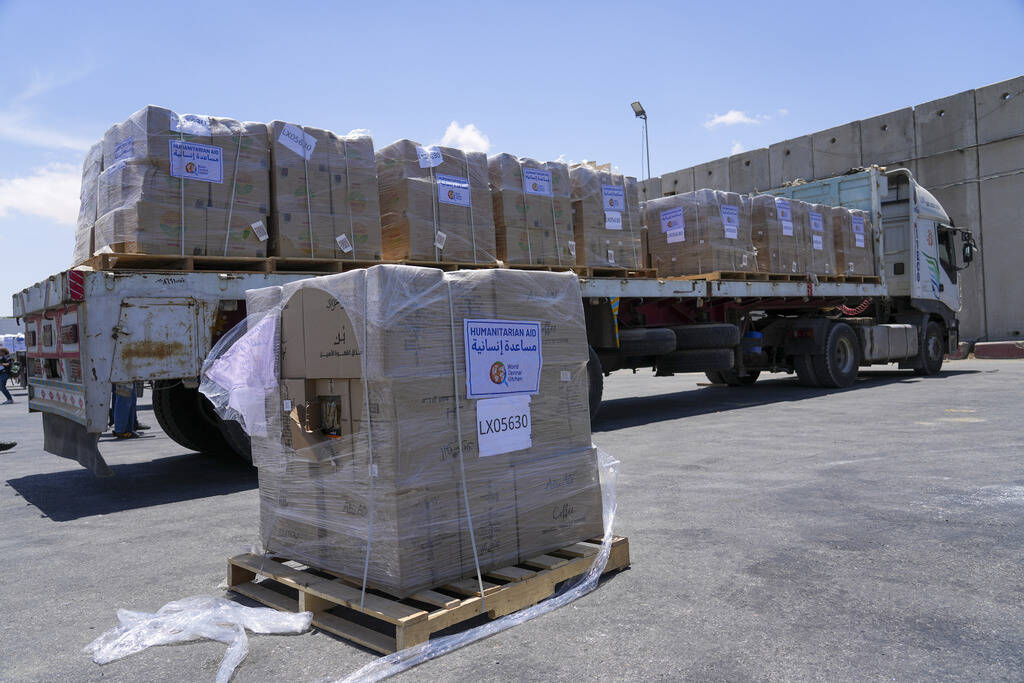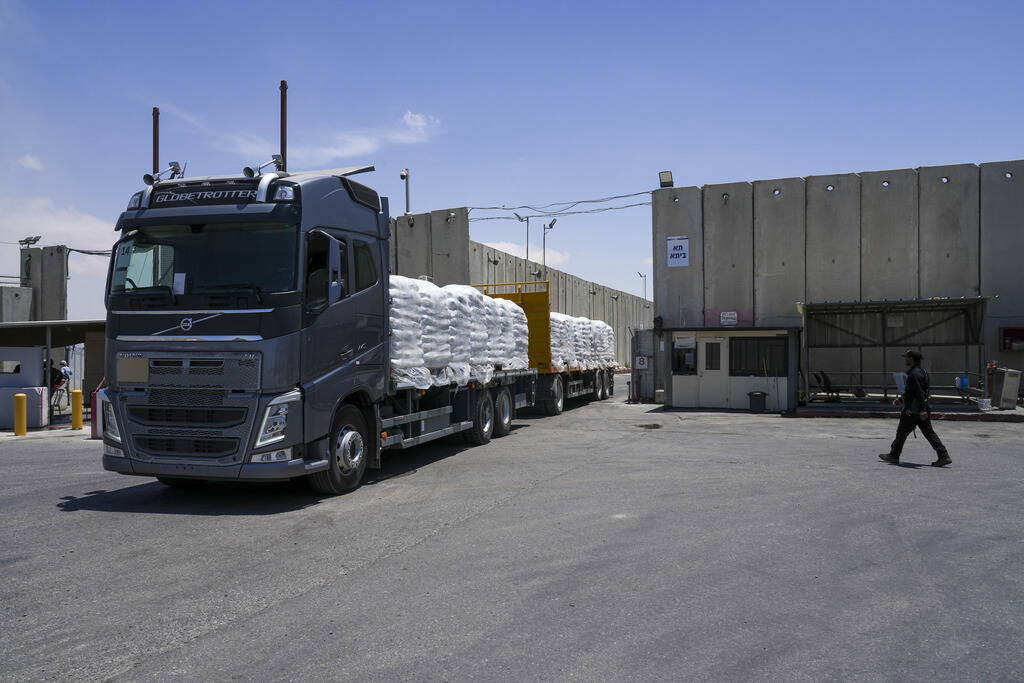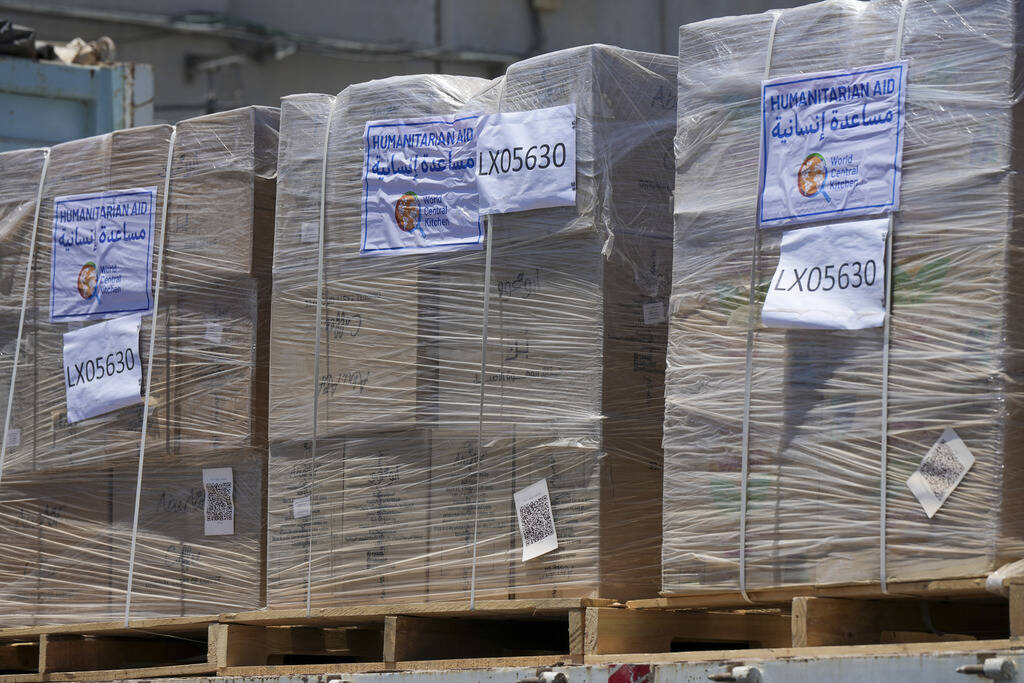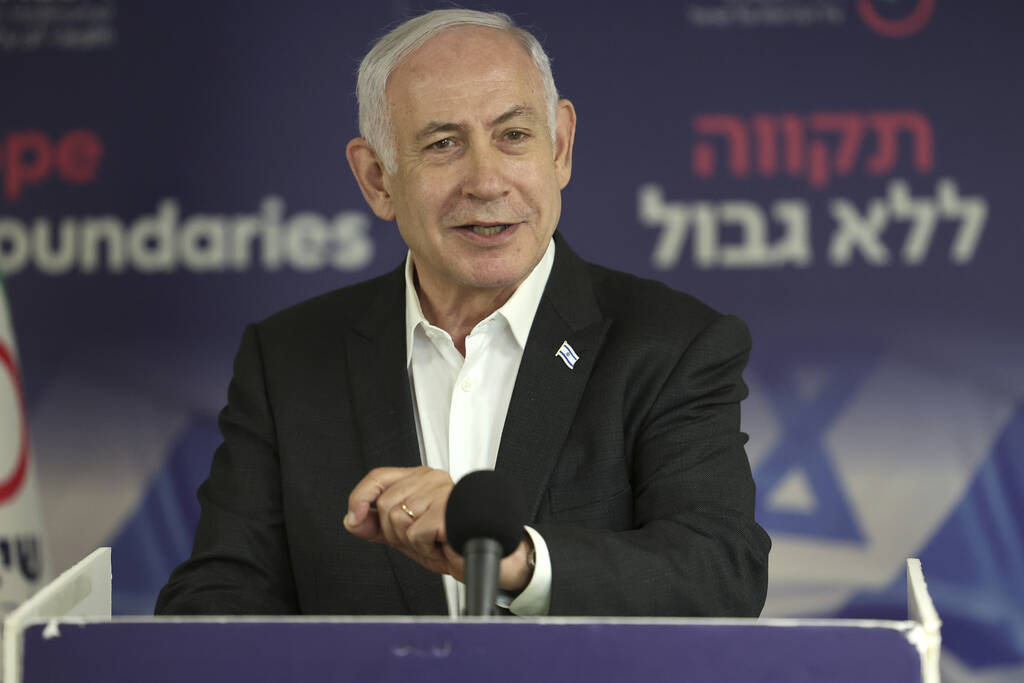Israel’s army to pause daytime fighting on Gaza route to help flow of aid
JERUSALEM — Israel’s military announced on Sunday that it would pause fighting during daytime hours along a route in southern Gaza to free up a backlog of humanitarian aid deliveries.
The army said that the daily “tactical pause,” which applies to about 7½ mile of road in the Rafah area, would begin at 8 a.m. and last until 7 p.m. and continue until further notice. It’s aimed at allowing aid trucks to reach the nearby Israel-controlled Kerem Shalom crossing, the main entry point, and travel safely to the Salah a-Din highway, a main north-south road, the military said.
The crossing has had a bottleneck since Israeli ground troops moved into Rafah in early May.
COGAT, the Israeli military body that oversees aid distribution in Gaza, said the route would increase the flow of aid to other parts of Gaza, including Khan Younis, the coastal area of Muwasi and central Gaza. Northern Gaza, an early target in the war, is served by goods entering from the north.
The military said that the pause, which begins as Muslims start marking the Eid Al-Adha holiday, came after discussions with the United Nations and other aid agencies.
A U.N. spokesperson, Jens Laerke, told The Associated Press that Israel’s announcement was welcome. Laerke said that the U.N. hopes for further concrete measures by Israel, including smoother operations at checkpoints and regular entry of fuel.
Israel and Hamas are weighing the latest proposal for a cease-fire, detailed by President Joe Biden in the administration’s most concentrated diplomatic push for a halt to the fighting and the release of hostages taken by the terrorist group.
While Biden described the proposal as an Israeli one, Israel hasn’t fully embraced it. Hamas has demanded changes that appear unacceptable to Israel.
With Israeli Prime Minister Benjamin Netanyahu vowing to press ahead with the war and many members of his government opposed to the cease-fire proposal, news of the military’s pause triggered a minor political storm.
An Israeli official quoted Netanyahu as saying the plan was “unacceptable to him” when he learned of it. The official said that Netanyahu received assurances that “there is no change” in the military’s policy and “fighting in Rafah continues as planned.” The official spoke on condition of anonymity because he wasn’t authorized to speak with the media.
Israeli television stations later quoted Netanyahu as criticizing the military: “We have a country with an army, not an army with a country.”
But neither Netanyahu nor the army canceled the new arrangement. While the army insisted “there is no cessation of fighting” in southern Gaza, it also said the new route would be open during daytime hours “exclusively for the transportation of humanitarian aid.”
The fighting continued Sunday.
Israel announced the names of 12 soldiers killed in recent attacks in Gaza, putting the number killed since Israel began its ground invasion of Gaza last year at 309. Hamas killed around 1,200 people during its Oct. 7 terrorist attack and took 250 hostage. The Hamas-run Health Ministry in Gaza says more than 37,000 Palestinians have been killed in the war.
Hamas’ supreme leader, Ismail Haniyeh, called for more pressure to open border crossings. Another crossing, the Rafah terminal between Gaza and Egypt, has been closed since Israel moved into the city. Egypt has refused to reopen the crossing as long as Israel controls the Palestinian side.
From May 6 until June 6, the U.N. received an average of 68 trucks of aid a day. That was down from 168 a day in April and far below the 500 a day that aid groups say are needed.
COGAT says there are no restrictions on the entry of trucks. It says more than 8,600 trucks of all kinds, aid and commercial, entered Gaza from all crossings from May 2 to June 13, an average of 201 a day. But much of that aid has piled up at crossings.
A COGAT spokesman, Shimon Freedman, said it was the U.N.’s fault that its cargo stacked up on the Gaza side of Kerem Shalom. He said its agencies have “fundamental logistical problems,” especially a lack of trucks.
The U.N. denies such allegations. It says the fighting often makes it too dangerous for U.N. trucks inside Gaza to travel to Kerem Shalom. It also says the pace of deliveries has slowed because Israel’s military must authorize drivers to travel to the site, a system Israel says was designed for drivers’ safety.
The new arrangement aims to reduce the need for coordinating deliveries by providing an 11-hour uninterrupted daily window
Because of a lack of security, some aid trucks have been looted by crowds as they moved along Gaza’s roads. It wasn’t immediately clear whether the army would provide security to protect trucks moving along the highway.

























